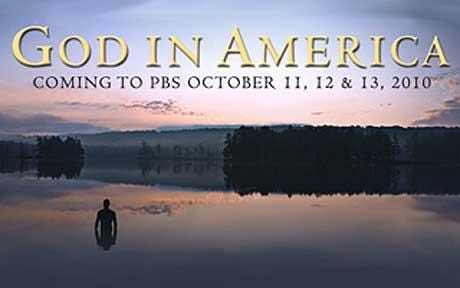Live-Blogging: God in America (Parts 3 & 4)

Here's part two of my live-blogging PBS' God in America documentary:
8:03 - This doesn't have anything to do with the documentary, but I'd really like to have my own foundation or two to fund stuff like this.
8:06 - "Abraham Lincoln had always kept his beliefs to himself." Witness the presentation of the secular/sacred split as a cherished American value.
8:09 - Abolitionists call slavery a national sin.
8:15 - The book of Philemon is not a text that proves biblical support of slavery.
8:20 - Lincoln definitely comes off a deist according to these scholars.
8:23 - Notre Dame's Mark Noll, arguably the greatest evangelical church historian alive, made the academic cut here. Good for him.
8:35 - More focus on Lincoln's "private/personal" working out of the will of God with regard to the Civil War.
8:39 - Lincoln no longer sounding deistic with language surrounding the Emancipation Proclamation. David Bright of Yale: "This was a religious moment."
8:45 - Total deistic misread of Job by Prothero. Wow. That one wasn't even close.
8:51 - Lincoln's assassination as atonement for Civil War? Awful painting of Lincoln as Christ-figure being received in Heaven to illustrate the idea.
8:55 - Out of Civil War and onto reshaping of the religious landscape through emigration.
9:04 - Traditional vs. Reformed Judaism an interesting tension in 19th-century America.
9:11 - Enter Darwin's Theory of Evolution. This should be interesting.
9:14 - Scriptures under fire in terms of authorship, inerrancy, infallibility, etc.
9:17 - Music almost triumphant under Charles Briggs' Enlightenment rhetoric.
9:26 - Trying to figure out where they're going with ten minutes on William Jennings Bryan.
9:28 - Post WWI, Fundamentalists now on the scene (dun, dun, dun) to combat Modernism.
9:32 - Scopes trial pits Bryan against Charles Darrow: "What was at stake for many people was the integrity of the Bible."
9:44 - "Fundamentalists seek to build own sub-culture after Scopes trial." Prothero: Delineations of people went from denominational to political.



